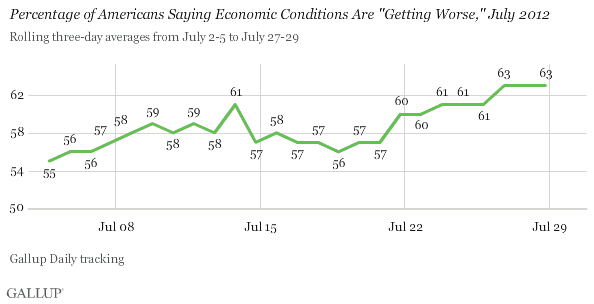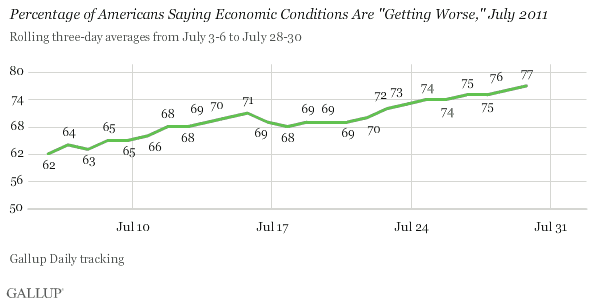This week, both the Fed and the European Central Bank meet and seem likely to adopt additional "creative" ways to stimulate the global economy in an effort to avoid a EU financial crisis and a potential global recession. While monetary authorities have proven they can stimulate global equity markets, it is not clear that they can do the same for the global economy. This is particularly the case in the U.S. as the impact of the presidential elections on the real economy seems similar to the fallout of last year's federal debt ceiling controversy.
In this regard, if you are experiencing feelings of economic déjà vu right now, you are not alone. The percentage of Americans saying they expect economic conditions to get worse has increased throughout July, going from 55% over the three days ending July 5 to 63% over the three days ending July 29 -- a sharp deterioration over less than one month.

A year ago, economic expectations showed a similar deterioration during July -- though more Americans at that time said the economy was getting worse.

The sharp drop in economic expectations in 2011 was largely attributable to the political confrontation over the federal debt ceiling, which ended last August. In 2012, it seems likely the fiscal cliff -- and its many related issues -- is creating a similar economic stall. Consumers and businesses are pulling back on their expectations and spending plans in light of major public policy uncertainties over the next 100 days as the election campaign unfolds and the economic fallout is assessed.
Last year's stall illustrated how political confrontation can bring the real-world economy close to recession. This year's worsening in economic expectations may show how presidential elections can do even more harm to the real economy -- particularly if the jobs situation does not show signs of significant improvement when the government's unemployment numbers are released on Friday.
